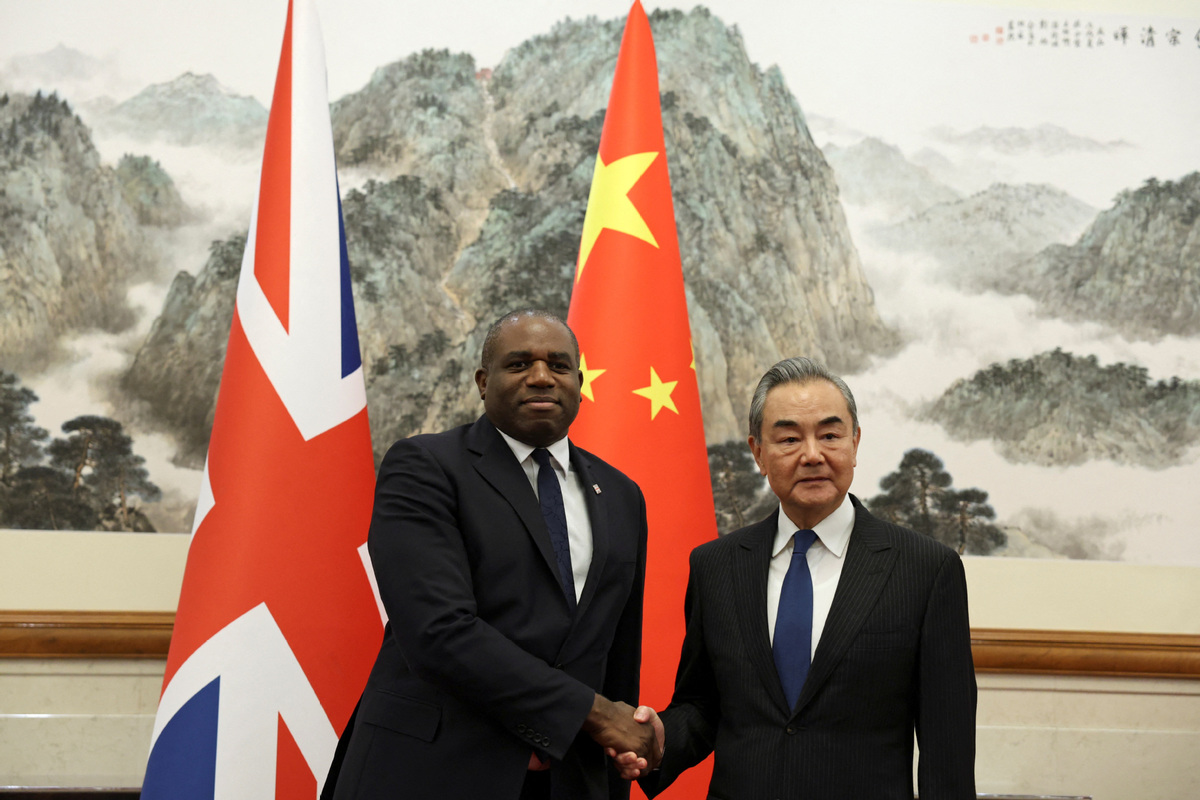How does the AI Partnership between London and Beijing contribute to technological advancements?
“`html
Unlocking Potential: London and Beijing Forge New Paths for Cooperation
The Historical Context of Cooperation
London and Beijing have a long-standing relationship that dates back decades, marked by exchanges in trade, culture, and education. This article explores how these two vibrant cities are forging new alliances to unlock potential in various sectors, including:
- Trade and Investment
- Technology and Innovation
- Cultural Exchange
Recent Developments in Trade and Investment
In recent years, London has emerged as a leading global financial center, while Beijing is rapidly becoming a hub for investment and technology. Together, they represent a unique opportunity for businesses eager to expand across Asia and Europe.
Trade Relations: A Growing Partnership
The bilateral trade between London and Beijing continues to thrive, driven by significant investments in technology, real estate, and green energy. Below is a table showcasing recent trade statistics:
| Year | Trade Volume (£ billion) | Growth Rate (%) |
|---|---|---|
| 2021 | 45.67 | – |
| 2022 | 53.12 | 16.5 |
| 2023 | 62.45 | 17.6 |
Technology: Fuelling Collaborative Innovation
The tech industries in both cities have experienced unprecedented growth. London, known for its financial technology (fintech) startups, is now collaborating with Beijing’s technology giants to drive innovation.
Case Studies of Innovative Collaboration
Several groundbreaking projects epitomize the synergy between London and Beijing in the technological landscape:
- The AI Partnership: Joint ventures focusing on artificial intelligence research and development have emerged, fostering knowledge exchange.
- 5G Infrastructure: Collaborative efforts to enhance 5G connectivity, with expectations to boost overall economic growth.
Cultural Exchange: Bridging Gaps and Building Narratives
Cultural programs play a significant role in enhancing mutual understanding between the people of London and Beijing. Various initiatives include:
- Art Exhibitions: Collaborations between cultural institutions highlight the rich artistic heritage of both cities.
- Educational Programs: University partnerships foster academic collaboration, helping students from both regions gain global perspectives.
Benefits of London-Beijing Cooperation
The collaborative efforts between London and Beijing provide numerous benefits:
- Economic Growth: Increased trade and investment opportunities stimulate economic growth in both cities.
- Innovation: Joint research initiatives lead to technological advancements.
- Social Understanding: Cultural exchanges foster goodwill and improve cross-cultural relationships.
Practical Tips for Engaging in London-Beijing Collaboration
Businesses and individuals looking to engage in cooperation between London and Beijing can take the following steps:
- Attend trade fairs and expos in both cities to network with key players.
- Leverage online platforms that facilitate cross-border business interactions.
- Engage with local chambers of commerce to understand market dynamics.
First-Hand Experiences in Cooperation
Several professionals have shared their experiences regarding collaboration between London and Beijing:
“Working on a joint project with a Beijing-based tech firm transformed our approach to innovation
Strengthening Ties: China’s Wang Yi and UK’s David Lammy Forge New Paths
On October 18, 2024, Foreign Minister Wang Yi and British Foreign Secretary David Lammy met at the Diaoyutai State Guesthouse in Beijing. Their encounter marked a significant moment as both nations expressed their desire to elevate bilateral relations into a new phase characterized by robust development.
A Framework for Enhanced Cooperation
Diving deep into the discussions, Wang emphasized China’s willingness to collaborate with the UK to enhance strategic dialogue. He suggested a focus on practical partnerships that would benefit both parties across various sectors including trade, finance, and sustainable development initiatives.
This visit by Lammy is noteworthy as it presents the first official engagement by a British cabinet member since Labour Prime Minister Keir Starmer assumed office in July 2024. It underscores an essential shift towards re-engagement following a period of strained relations.
Strategic Relationship Development
The Chinese minister expressed appreciation for the Labour government’s vision of establishing long-lasting cooperative ties with China. According to Wang, this approach aligns well with historical trends and meets the pressing needs of both nations’ citizens while also reflecting evolving international dynamics.
Mutual Respect in Sensitive Matters
A key point discussed was the importance of respecting each nation’s domestic concerns such as issues surrounding Taiwan and Hong Kong. This respect is crucial for cultivating an atmosphere ripe for meaningful exchanges and collaborations between China and Britain.
The UK’s Position on Taiwan
In his remarks, Lammy confirmed that the UK intends to maintain its previously established stance regarding Taiwan—emphasizing long-term commitment based on past diplomatic agreements since formal relations began with China. This position reflects not only historical commitments but also intentions going forward.
A Bridging Perspective Between Nations
Lamenting any notions of separation, Lammy remarked that an “iron curtain” should not exist between such interconnected economies like those of China and Britain. His optimism highlighted mutual interests as pathways towards revitalizing collaboration between their nations’ economic landscapes.
Tackling Global Challenges Together
Bearing shared responsibilities as permanent members of the United Nations Security Council, both leaders acknowledged their roles in promoting global peace and stability. They committed to upholding free trade principles while collaboratively responding to geopolitical tensions through diplomatic discussions rather than conflicts.
Dialogue on Global Affairs
The meeting concluded with candid discussions concerning pressing global issues spanning from Ukraine’s ongoing crisis to persistent challenges within Palestine-Israel relations as well as governance concerns in Myanmar.




Jaguars on the Brink: Is the Season Already a Write-Off